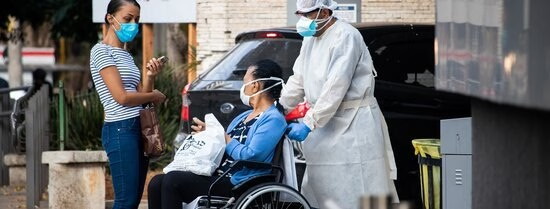The acclaimed Disasters journal has just published a special issue about the impacts of the COVID-19 pandemic on economies and societies around the world, and the local responses to it. The journal includes two contributions by ISS staff members. One of them examines the effects of COVID-19 in conflict-affected areas. Another paper aims to comprehend the responses of vulnerable social groups in Brazil in an era of necropolitics.
When COVID-19 meets conflict
What have been the effects of COVID-19 on low-income countries and vulnerable populations? How has the pandemic exacerbated inequalities and aggravated humanitarian crises or conflict? To answer these questions, Professor Thea Hilhorst and professor Rod Menda teamed up with students at the International Institute of Social Studies (ISS) to study the effects of COVID-19 and the measures taken in seven countries. In their paper, they conclude that effects of COVID-19 are related to previous conflict histories. The extent to which a disaster like the pandemic will trigger or exacerbate conflict and vulnerabilities depends on pre-existing, country-specific conditions and the response and framing of a government, and other actors.
Brazil: COVID-19 and necropolitics
The impact of the COVID-19 crisis in Brazil has been tremendous. The politics of president Bolsonaro entailed repudiating mitigation measures and fuelling a discourse of denial. The consequences of these politics have been devastating. With high numbers of deceased and the collapse of healthcare systems, Brazil became one of the global epicentres of the crisis. The authors of the paper by Dr Georgina Gomez, Dr Lee Pegler and PhD candidates Renata Calvacanti Muniz and Fiorella Macchiavello Ferradas use the term ‘necropolitics’ to characterise the politics and narrative of Bolsonaro. In their paper, they focus on three vulnerable social groups in Brazilian society: domestic workers, the urban poor in the favelas, and indigenous Amazonians. They analyse their resistance, disaster mitigation and actions, and conclude that their responses may offer the prospect of consolidation.
- Professor
- Assistant professor
- Associate professor
- Assistant professor
- PhD student
- PhD student

